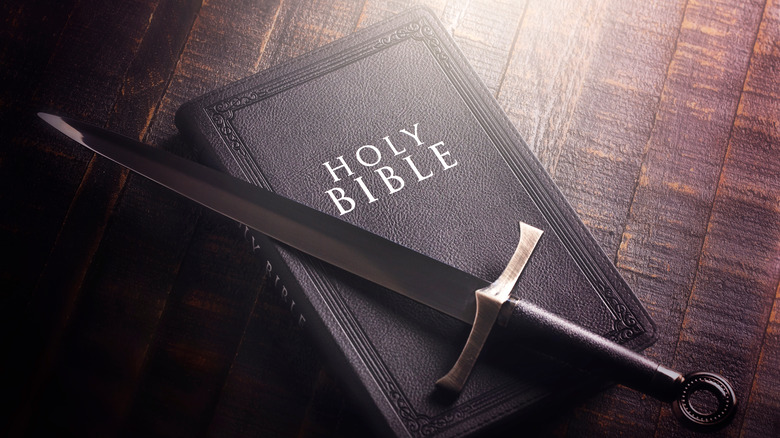Here's What The Bible Really Says About The Death Penalty
For as long as civilization has existed, death has been used as a legal punishment. One of the earliest known written legal codes, the Babylonian Code of Hammurabi, details the brutal consequences of crimes such as murder, maiming, and theft. Though there were less bloody legal consequences in other ancient societies, execution was rarely ever excluded from them. Not only that but often one's faith or culture could leave them just as vulnerable to judicial killing as if they were a murderer (e.g., the Spanish Inquisition).
In the United States, the death penalty has gradually evolved in many states over the last two centuries. Most fully retain it, others reserve it for treason, and many have abolished it altogether. Those who seek its total abolition vary widely in their personal beliefs, ranging from staunch atheists to deeply religious figures. Pope Francis in particular has made his view of the death penalty as inadmissible under Christianity very clear (via The Conversation). Yet while he and some of his predecessors maintain similar positions, does the Bible support them? In truth, this can be a gray area, and the notion that the Bible argues completely for or against the death penalty is not a sound one.
The Bible often justifies the death penalty but does not require its use
According to the BBC, the death penalty hardly comes into conflict at all with the Old Testament. In fact, many modern notions of what constitutes an executable offense are far too lenient according to it since idolatry and blasphemy are among the text's 35 capital offenses. Yet, at the same time, per Biblical passages, it was also not always followed through, whether it be commuted through compensation or confession by the accused (via Theopolis Institute). Additionally, while both were forbidden, manslaughter was distinguished from other forms of homicide and open to more moderate punishment.
Despite Jesus' refusal to endorse the death penalty, the New Testament is where things become even less clear since it does not take a hard stance for or against the practice. Instead, according to Prison Fellowship, it often asserts that government has a right but not an obligation to perform executions. As for whether the death penalty can be considered justifiable in the first place (regardless of whether it is carried out), instances of executable offense were to be examined individually. Not unlike the modern legal process, it was only (officially) when certainty of guilt and the proportionality of the crime were established that execution could be considered (via Knowing Scripture).

